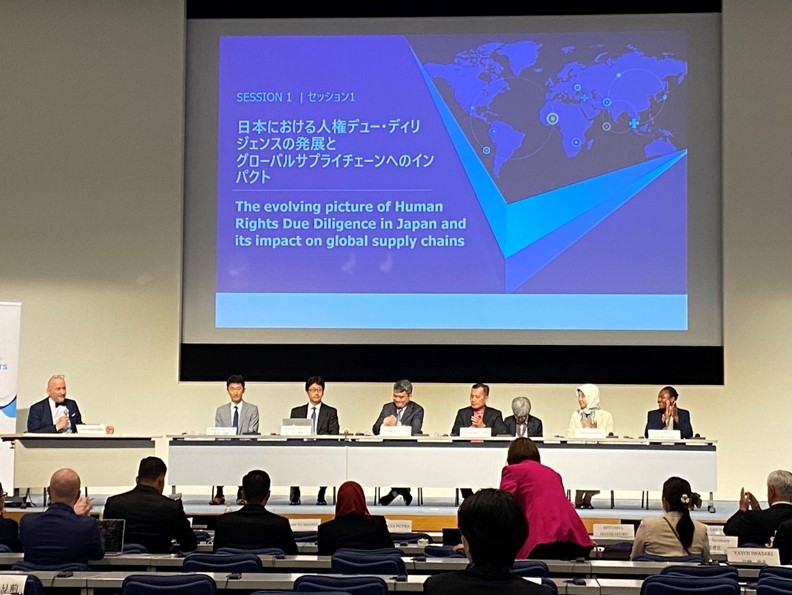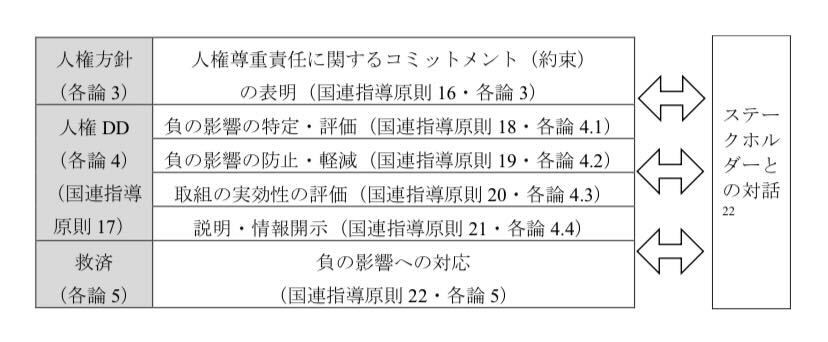What is Human Rights Due Diligence?

I recently attended the UNDP-led “Human Rights Due Diligence in a Connected World: Approaches to Shaping Sustainable Business Practices From Japan”
Human Rights Due Diligence (HRDD) may not be a familiar term to many, however, it has been gradually drawing more attention in recent years.
Since the UN Human Rights Council endorsed the “Guiding Principles on Business and Human Rights” in 2011, various policies have been implemented in many countries to promote respect for human rights by companies.
In September 2022, the Japanese government established the “Guidelines for Respecting Human Rights in Responsible Supply Chains, etc.” to support corporate efforts to respect human rights. Although the Guidelines have no legal force, they are an important indicator to encourage companies to respect human rights.
(Figure 1: Due diligence process and supporting measures)

(Source: OECD)
The relationship between “business and human rights” may be a little difficult to picture.
In business, various “human rights issues” that could arise in corporate activities, such as excessive and unreasonable working hours, violation such as sexual assault and Abuse of authority, and unfair discrimination, are attracting attention, and responses to such “human rights issues” have a significant bearing on corporate value.
Furthermore, if human rights risks are ignored in M&A transactions, they may affect the acquiring company in the form of legal, regulatory, and financial risks, as well as reputational damage, and companies are inundated with inquiries from law firms and consultants about how to respond to such risks.
(Guidelines for Respecting Human Rights in Responsible Supply Chains, etc.)

(Source: Ministry of Economy, Trade and Industry)
In addition, “management respecting for human rights” is a fluid concept. Since different generations have different ways of thinking, there is a need to fill in the gaps.
It is also something that changes daily as business develops.For example, the increasing use of artificial intelligence (AI) by companies, and accompanying that, the rise of human rights issues is receiving more attention. The process of using AI may encourage privacy violations and discrimination, and an increasing number of technology companies are developing AI ethics guidelines and “AI and Human Rights” policies to prevent and correct problems arising from the use of AI by companies. (Figure 3: NEC’s Artificial Intelligence (AI) Policy).
(Figure 3: NEC’s policy on AI and human rights)

(Source: NEC)
Thus, “business and human rights” is not just a matter of setting and achieving a goal; it is an eternal challenge.
This year (2023) marks the 75th anniversary of the Universal Declaration of Human Rights. Human rights issues are not something that is unrelated to us, but something that is close to any of us.
Even if it is just to create a framework as a response to “human rights issues” in terms of corporate value, I strongly believe that this kind of initiative is an important effort to raise awareness of “human rights issues” not only among companies but also among the public, as well as to provide a model for developing countries.
Corporate Planning Group Yoko NAKANO


